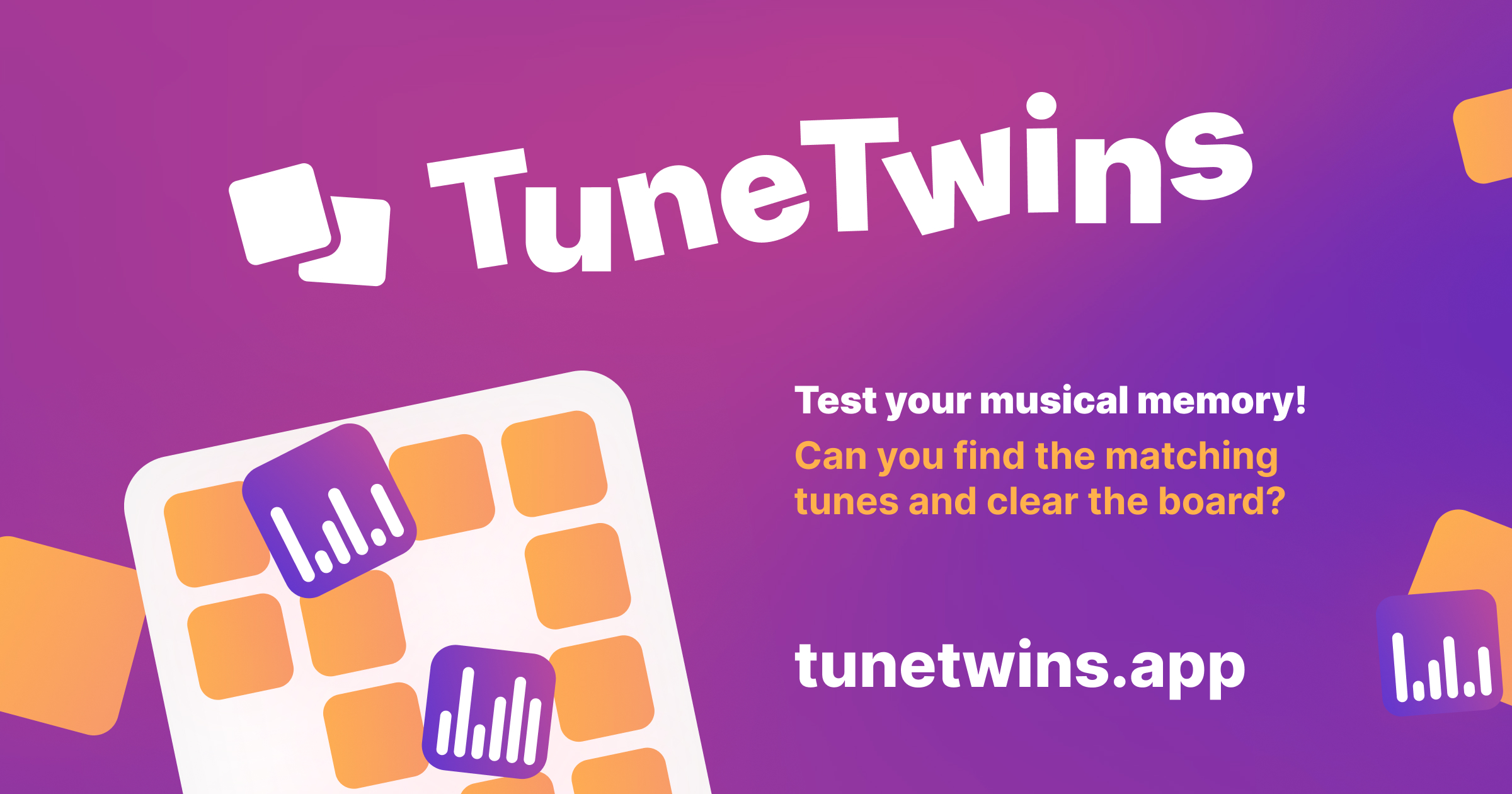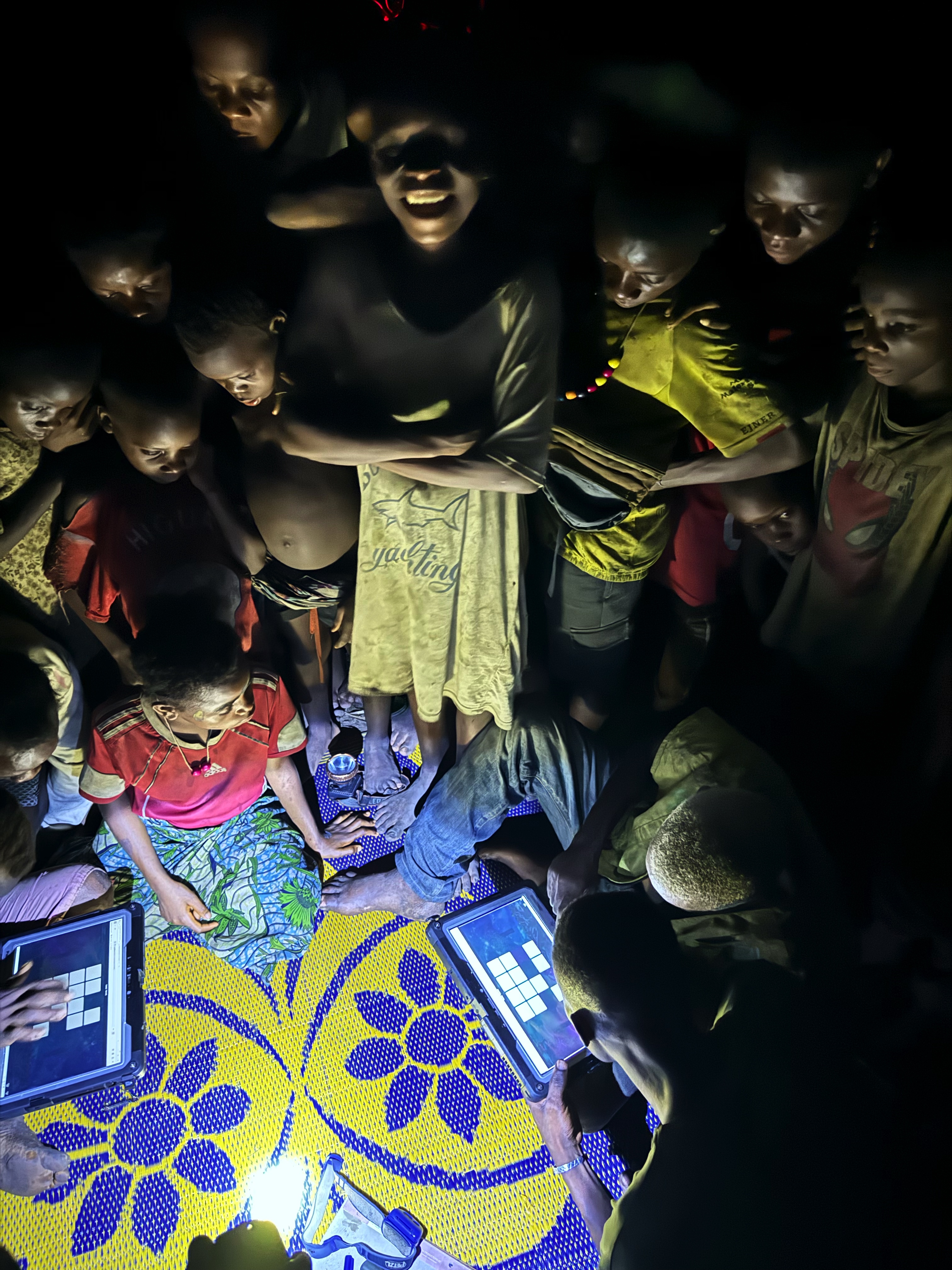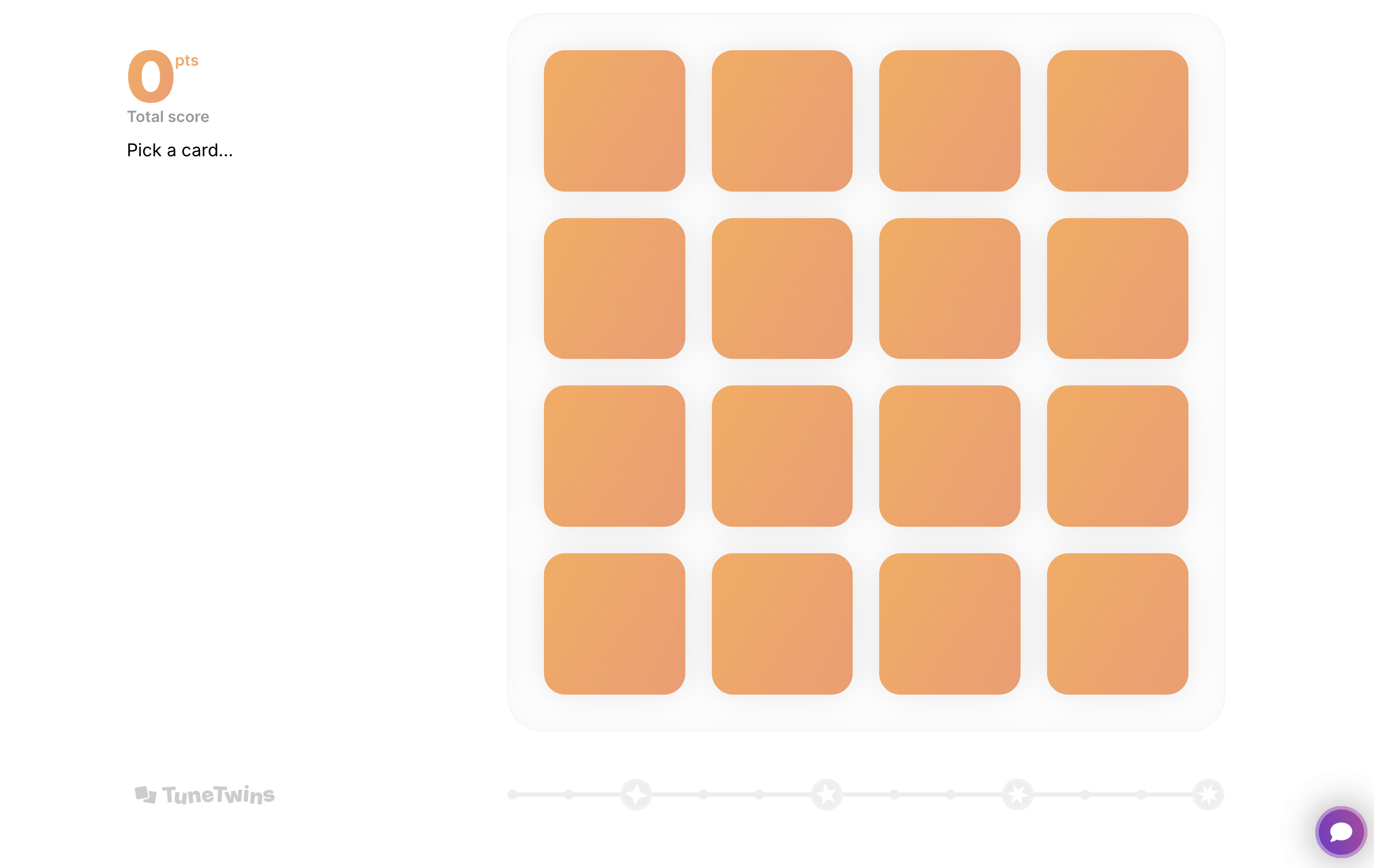Test your musical memory with TuneTwins

How good is your musical memory? Join our global experiment at TuneTwins.app and share your score with #TuneTwins. Don’t forget to challenge your family and friends!
What is TuneTwins?
TuneTwins is a web-based musical memory game developed by the Music Cognition Group of the University of Amsterdam as part of a global citizen science project for everyone, everywhere.
Since its release, the game has travelled far and wide in many different versions. It was enjoyed by children at Dutch science fairs and the NEMO Science Museum. One of our favourite moments was when members of the Indigenous Mbendjele BaYaka hunter-gatherer community deep in the Congo Basin rainforest got engaged with the game during a month-long research visit by the Music Cognition Group and associates (Jiaxin Li, Karline Jamaat, Frans van Schraik, and Matthias van de Vlist). They wanted to play the game over and over again!

Photo by Matthias van de Vlist. Portrait used with appropriate consent.
The science behind the game
What do we remember when we are listening to music? The pitch? The rhythm? Something else altogether? That’s the question researchers are exploring with TuneTwins.
TuneTwins is a musical twist on the classic Memory card game. Players match pairs of short musical fragments — some identical, some distorted — to test their musical memories while helping scientists explore how we remember music.
Below is an example of identical pairs (on easy board). If you click on two cards with two identical music fragements, you have a ‘match’:
This will become quite challenging when you have to listen to distorted music to find the pair. Below is an example of a similar matching pair. One of them is degraded:
With this game, our research explores two key questions:
-
How does removing different types of musical information (spectral, temporal information) affect our ability to recognize melodies?
-
Does our cultural background influence what we remember in music?
To investigate this, we’re featuring three distinct musical traditions: Traditional Chinese music, Central African BaYaka music, and Western TV and film themes. By comparing how players from different backgrounds perform with familiar versus unfamiliar musical styles, we can understand what information does our music memory care and what is the role of cultural familiarity in it.
How to play
Some easy level of the games is self-explanatory, you are simply looking for identical music pairs. Others are more challenging, where you have to match the “degraded” music – either on time dimension or frequency dimension - with its original version. Use your ears to find the matches despite these changes!

Here’s how scoring works:
-
Start with a board of 16 cards, each hiding a short musical clip.
-
Click a card to listen carefully, then try to find a second card that matches it.
-
Find all 8 matching pairs to clear the board and score points:
-
Matched first card with one you’ve heard before — memory wins! +20 points!
-
Chose a wrong second card that’s heard before? Oops — penalty... -10 points:
-
If you flip over two new cards that you have not already heard, and they happen to match -- alucky find! + 10 points.
-
If you haven’t heard the cards and they are not a match, that’s natural, no worries, you score stays the same.
-
Join the global experiment
Each game takes only a few minutes. We welcome you to explore different musical styles and degradations while earning more stars and points! The more you play, the more you contribute to our understanding of musical memory across cultures!
Preliminary findings from TuneTwins
The game has now been online for a few weeks, and we see many enthusiastic players! And, from the responses of 1,410 participants across 59 countries — who together have played 4,466 games — we’re beginning to see some interesting patterns:
- Participants tend to perform better with music they’re familiar with — the more you know the songs, the higher your score. Interestingly, pitch is the key musical dimension the current participant group use to remember and recognize music.
- We also noticed an effect of age: younger participants tend to score higher on average, a phenomenon not uncommon in Memory games.
- And perhaps most surprising is that musicianship doesn’t seem to influence performance: players of different musical backgrounds perform similarly. This suggests that, as shown in earlier research, mere exposure (i.e. familiarity) is more important for music cognition than musical training or musicianship.
These first results are intriguing, but the story is still incomplete. We hope, as more people play TuneTwins, we get a clearer image of how listeners remember familiar music all around the globe.
Curious to see how well you can remember music? Challenge yourself and discover your own musical memory in action now!